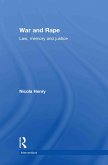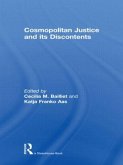Sean Richmond
Unbound in War?
International Law in Canada and Britain's Participation in the Korean War and Afghanistan
Sean Richmond
Unbound in War?
International Law in Canada and Britain's Participation in the Korean War and Afghanistan
- Gebundenes Buch
- Merkliste
- Auf die Merkliste
- Bewerten Bewerten
- Teilen
- Produkt teilen
- Produkterinnerung
- Produkterinnerung
This book tells the story of how two of America’s closest allies, Canada and Britain, have sought to reconcile their security concerns with their legal obligations during two of the most significant international conflicts since the Second World War.
Andere Kunden interessierten sich auch für
![Human Rights Unbound Human Rights Unbound]() Lea RaibleHuman Rights Unbound154,99 €
Lea RaibleHuman Rights Unbound154,99 €![Globalization and International Law Globalization and International Law]() David J. BedermanGlobalization and International Law39,99 €
David J. BedermanGlobalization and International Law39,99 €![IOM Unbound? IOM Unbound?]() IOM Unbound?126,99 €
IOM Unbound?126,99 €![The Covenant of the League of Nations [microform] The Covenant of the League of Nations [microform]]() The Covenant of the League of Nations [microform]29,99 €
The Covenant of the League of Nations [microform]29,99 €![Prisoners of War or Unlawful Combatants?: Guantanamo Bay and International Law (St. James's Studies in World Affairs) Prisoners of War or Unlawful Combatants?: Guantanamo Bay and International Law (St. James's Studies in World Affairs)]() Valerie JechePrisoners of War or Unlawful Combatants?: Guantanamo Bay and International Law (St. James's Studies in World Affairs)160,99 €
Valerie JechePrisoners of War or Unlawful Combatants?: Guantanamo Bay and International Law (St. James's Studies in World Affairs)160,99 €![War and Rape War and Rape]() Nicola HenryWar and Rape197,99 €
Nicola HenryWar and Rape197,99 €![Cosmopolitan Justice and Its Discontents Cosmopolitan Justice and Its Discontents]() Cosmopolitan Justice and Its Discontents218,99 €
Cosmopolitan Justice and Its Discontents218,99 €-
-
-
This book tells the story of how two of America’s closest allies, Canada and Britain, have sought to reconcile their security concerns with their legal obligations during two of the most significant international conflicts since the Second World War.
Hinweis: Dieser Artikel kann nur an eine deutsche Lieferadresse ausgeliefert werden.
Hinweis: Dieser Artikel kann nur an eine deutsche Lieferadresse ausgeliefert werden.
Produktdetails
- Produktdetails
- Verlag: University of Toronto Press
- Seitenzahl: 288
- Erscheinungstermin: 6. August 2021
- Englisch
- Abmessung: 231mm x 157mm x 25mm
- Gewicht: 599g
- ISBN-13: 9781487503468
- ISBN-10: 1487503466
- Artikelnr.: 60596678
- Herstellerkennzeichnung
- Libri GmbH
- Europaallee 1
- 36244 Bad Hersfeld
- gpsr@libri.de
- Verlag: University of Toronto Press
- Seitenzahl: 288
- Erscheinungstermin: 6. August 2021
- Englisch
- Abmessung: 231mm x 157mm x 25mm
- Gewicht: 599g
- ISBN-13: 9781487503468
- ISBN-10: 1487503466
- Artikelnr.: 60596678
- Herstellerkennzeichnung
- Libri GmbH
- Europaallee 1
- 36244 Bad Hersfeld
- gpsr@libri.de
By Sean Richmond
Acknowledgments
1. Introduction
Introduction
Organization of the book
2. Existing Literature, Research Design and Case Selection
International law and the use of force
Research design, method, and premises
Case selection
a) Why focus on Britain and Canada?
b) Why focus on the Korean War and Afghanistan Conflict?
3. Theoretical Framework
Introduction
How should we conceive of international law - as rules or process?
International law in the study of international relations
a) Realist approaches
b) Neo-liberal institutionalism
c) Constructivist perspectives
The "interactional" approach
Positing the four roles of international law in the use of force by states
4. Britain and the Korean War
Introduction
Brief background to the Korean War
Why Britain participated in the Korean War
The four roles of international law in Britain’s use of force in Korea
a) Constitutive
b) Regulative
c) Permissive and legitimating
d) Structuring the development of new rules
The understanding of international law in Britain’s use of force in Korea
a) Britain’s interpretation of the Security Council resolutions on the
Korean crisis
b) Britain’s interpretation of Article 118 of the Geneva Convention on
POWs
Key findings
5. Canada and the Korean War
Introduction
Why Canada participated in the Korean War
The four roles of international law in Canada’s use of force in Korea
a) Constitutive
b) Regulative
c) Permissive and legitimating
d) Structuring the development of new rules
The understanding of international law in Canada’s use of force in Korea
a) Canada’s interpretation of the Security Council resolutions on the
Korean crisis
b) Canada’s interpretation of Article 118 of the Geneva Convention on
POWs
Key findings
6. Britain and the Afghanistan Conflict
Introduction
Brief background to the Afghanistan Conflict
The three phases of Britain’s military participation in the Afghanistan
Conflict
Why Britain participated in the Afghanistan Conflict
The four roles of international law in Britain’s use of force in
Afghanistan
a) Constitutive
b) Regulative
c) Permissive and legitimating
d) Structuring the development of new rules
The understanding of international law in Britain’s use of force in
Afghanistan
a) Britain’s understanding of the UN Charter and NATO treaty
b) Britain’s interpretation of international human rights law
Key findings
7. Canada and the Afghanistan Conflict
Introduction
The three phases of Canada’s military participation in the Afghanistan
Conflict
Why Canada participated in the Afghanistan Conflict
The four roles of international law in Canada’s use of force in Afghanistan
a) Constitutive
b) Regulative
c) Permissive and legitimating
d) Structuring the development of new rules
The understanding of international law in Canada’s use of force in
Afghanistan
a) Canada’s understanding of the NATO treaty and UN Charter
b) Canada’s interpretation of the Geneva Convention on POWs
Key findings
8. Conclusion
Summary of findings
Significance of findings for theory and future research
Bibliography
Index
1. Introduction
Introduction
Organization of the book
2. Existing Literature, Research Design and Case Selection
International law and the use of force
Research design, method, and premises
Case selection
a) Why focus on Britain and Canada?
b) Why focus on the Korean War and Afghanistan Conflict?
3. Theoretical Framework
Introduction
How should we conceive of international law - as rules or process?
International law in the study of international relations
a) Realist approaches
b) Neo-liberal institutionalism
c) Constructivist perspectives
The "interactional" approach
Positing the four roles of international law in the use of force by states
4. Britain and the Korean War
Introduction
Brief background to the Korean War
Why Britain participated in the Korean War
The four roles of international law in Britain’s use of force in Korea
a) Constitutive
b) Regulative
c) Permissive and legitimating
d) Structuring the development of new rules
The understanding of international law in Britain’s use of force in Korea
a) Britain’s interpretation of the Security Council resolutions on the
Korean crisis
b) Britain’s interpretation of Article 118 of the Geneva Convention on
POWs
Key findings
5. Canada and the Korean War
Introduction
Why Canada participated in the Korean War
The four roles of international law in Canada’s use of force in Korea
a) Constitutive
b) Regulative
c) Permissive and legitimating
d) Structuring the development of new rules
The understanding of international law in Canada’s use of force in Korea
a) Canada’s interpretation of the Security Council resolutions on the
Korean crisis
b) Canada’s interpretation of Article 118 of the Geneva Convention on
POWs
Key findings
6. Britain and the Afghanistan Conflict
Introduction
Brief background to the Afghanistan Conflict
The three phases of Britain’s military participation in the Afghanistan
Conflict
Why Britain participated in the Afghanistan Conflict
The four roles of international law in Britain’s use of force in
Afghanistan
a) Constitutive
b) Regulative
c) Permissive and legitimating
d) Structuring the development of new rules
The understanding of international law in Britain’s use of force in
Afghanistan
a) Britain’s understanding of the UN Charter and NATO treaty
b) Britain’s interpretation of international human rights law
Key findings
7. Canada and the Afghanistan Conflict
Introduction
The three phases of Canada’s military participation in the Afghanistan
Conflict
Why Canada participated in the Afghanistan Conflict
The four roles of international law in Canada’s use of force in Afghanistan
a) Constitutive
b) Regulative
c) Permissive and legitimating
d) Structuring the development of new rules
The understanding of international law in Canada’s use of force in
Afghanistan
a) Canada’s understanding of the NATO treaty and UN Charter
b) Canada’s interpretation of the Geneva Convention on POWs
Key findings
8. Conclusion
Summary of findings
Significance of findings for theory and future research
Bibliography
Index
Acknowledgments
1. Introduction
Introduction
Organization of the book
2. Existing Literature, Research Design and Case Selection
International law and the use of force
Research design, method, and premises
Case selection
a) Why focus on Britain and Canada?
b) Why focus on the Korean War and Afghanistan Conflict?
3. Theoretical Framework
Introduction
How should we conceive of international law - as rules or process?
International law in the study of international relations
a) Realist approaches
b) Neo-liberal institutionalism
c) Constructivist perspectives
The "interactional" approach
Positing the four roles of international law in the use of force by states
4. Britain and the Korean War
Introduction
Brief background to the Korean War
Why Britain participated in the Korean War
The four roles of international law in Britain’s use of force in Korea
a) Constitutive
b) Regulative
c) Permissive and legitimating
d) Structuring the development of new rules
The understanding of international law in Britain’s use of force in Korea
a) Britain’s interpretation of the Security Council resolutions on the
Korean crisis
b) Britain’s interpretation of Article 118 of the Geneva Convention on
POWs
Key findings
5. Canada and the Korean War
Introduction
Why Canada participated in the Korean War
The four roles of international law in Canada’s use of force in Korea
a) Constitutive
b) Regulative
c) Permissive and legitimating
d) Structuring the development of new rules
The understanding of international law in Canada’s use of force in Korea
a) Canada’s interpretation of the Security Council resolutions on the
Korean crisis
b) Canada’s interpretation of Article 118 of the Geneva Convention on
POWs
Key findings
6. Britain and the Afghanistan Conflict
Introduction
Brief background to the Afghanistan Conflict
The three phases of Britain’s military participation in the Afghanistan
Conflict
Why Britain participated in the Afghanistan Conflict
The four roles of international law in Britain’s use of force in
Afghanistan
a) Constitutive
b) Regulative
c) Permissive and legitimating
d) Structuring the development of new rules
The understanding of international law in Britain’s use of force in
Afghanistan
a) Britain’s understanding of the UN Charter and NATO treaty
b) Britain’s interpretation of international human rights law
Key findings
7. Canada and the Afghanistan Conflict
Introduction
The three phases of Canada’s military participation in the Afghanistan
Conflict
Why Canada participated in the Afghanistan Conflict
The four roles of international law in Canada’s use of force in Afghanistan
a) Constitutive
b) Regulative
c) Permissive and legitimating
d) Structuring the development of new rules
The understanding of international law in Canada’s use of force in
Afghanistan
a) Canada’s understanding of the NATO treaty and UN Charter
b) Canada’s interpretation of the Geneva Convention on POWs
Key findings
8. Conclusion
Summary of findings
Significance of findings for theory and future research
Bibliography
Index
1. Introduction
Introduction
Organization of the book
2. Existing Literature, Research Design and Case Selection
International law and the use of force
Research design, method, and premises
Case selection
a) Why focus on Britain and Canada?
b) Why focus on the Korean War and Afghanistan Conflict?
3. Theoretical Framework
Introduction
How should we conceive of international law - as rules or process?
International law in the study of international relations
a) Realist approaches
b) Neo-liberal institutionalism
c) Constructivist perspectives
The "interactional" approach
Positing the four roles of international law in the use of force by states
4. Britain and the Korean War
Introduction
Brief background to the Korean War
Why Britain participated in the Korean War
The four roles of international law in Britain’s use of force in Korea
a) Constitutive
b) Regulative
c) Permissive and legitimating
d) Structuring the development of new rules
The understanding of international law in Britain’s use of force in Korea
a) Britain’s interpretation of the Security Council resolutions on the
Korean crisis
b) Britain’s interpretation of Article 118 of the Geneva Convention on
POWs
Key findings
5. Canada and the Korean War
Introduction
Why Canada participated in the Korean War
The four roles of international law in Canada’s use of force in Korea
a) Constitutive
b) Regulative
c) Permissive and legitimating
d) Structuring the development of new rules
The understanding of international law in Canada’s use of force in Korea
a) Canada’s interpretation of the Security Council resolutions on the
Korean crisis
b) Canada’s interpretation of Article 118 of the Geneva Convention on
POWs
Key findings
6. Britain and the Afghanistan Conflict
Introduction
Brief background to the Afghanistan Conflict
The three phases of Britain’s military participation in the Afghanistan
Conflict
Why Britain participated in the Afghanistan Conflict
The four roles of international law in Britain’s use of force in
Afghanistan
a) Constitutive
b) Regulative
c) Permissive and legitimating
d) Structuring the development of new rules
The understanding of international law in Britain’s use of force in
Afghanistan
a) Britain’s understanding of the UN Charter and NATO treaty
b) Britain’s interpretation of international human rights law
Key findings
7. Canada and the Afghanistan Conflict
Introduction
The three phases of Canada’s military participation in the Afghanistan
Conflict
Why Canada participated in the Afghanistan Conflict
The four roles of international law in Canada’s use of force in Afghanistan
a) Constitutive
b) Regulative
c) Permissive and legitimating
d) Structuring the development of new rules
The understanding of international law in Canada’s use of force in
Afghanistan
a) Canada’s understanding of the NATO treaty and UN Charter
b) Canada’s interpretation of the Geneva Convention on POWs
Key findings
8. Conclusion
Summary of findings
Significance of findings for theory and future research
Bibliography
Index

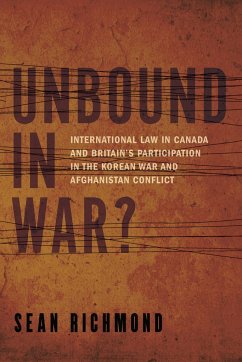
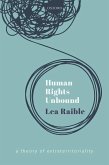
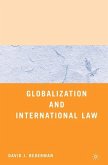
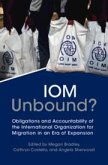
![The Covenant of the League of Nations [microform] The Covenant of the League of Nations [microform]](https://bilder.buecher.de/produkte/71/71703/71703091m.jpg)

